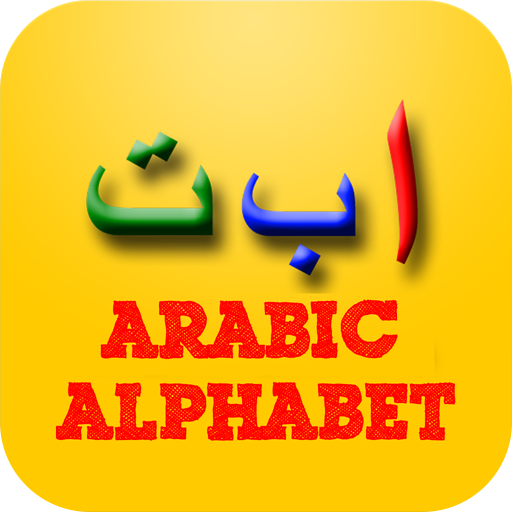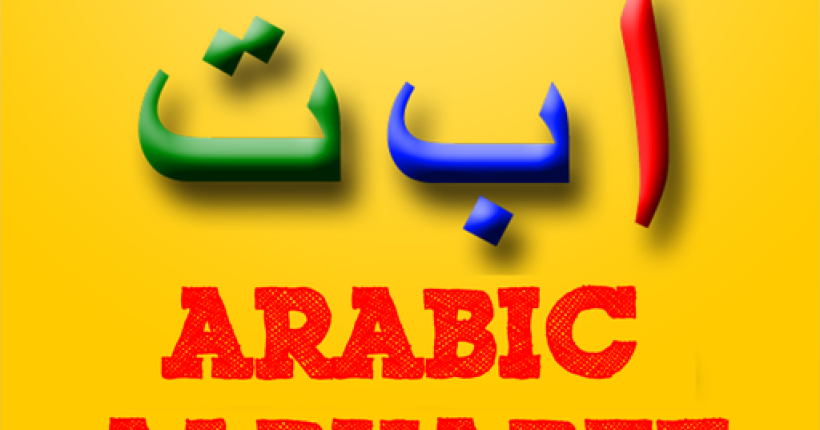Learning Arabic vocabulary for proficiency exams is one of the key steps towards being prepared for your exam and feeling confident in your Arabic language skills. Whether you are studying for the official government language proficiency exam or looking to improve your Arabic skills, knowing vocabulary is critical to your success.
In this article, I will explore the impact of vocabulary on your exam success, and more. Let’s get started!
Key Categories of Arabic Vocabulary for Proficiency Exams
Developing a strong vocabulary for your Arabic proficiency exam means thinking about a balance of words and expressions. Here are the categories of words to focus on as you prepare your Arabic vocabulary for proficiency exams:
Formal and Classical Arabic Words: Most proficiency exams test your recognition and comprehension of Modern Standard Arabic (MSA), which is based on classical Arabic language roots. In summary, learn the words which are used in formal writing and official communications.
Informal Conversation Words: Proficiency tests certainly test your knowledge of formal Arabic language (listen for all of the formal words that are used in the speck itself), but it is also important to have some phrases that come from everyday conversations and common expressions base of words when studying for listening and speaking tasks.
Academic and Theme Words: Study theme/academic related vocabulary words associated with education, technology, environment, culture and politics, as these are going to appear on many exams, and if you can study these types of words, reading and writing tasks become much easier for you compared to if you don’t have any theme preparation before the exam or, academic or theme words, for example, while doing a reading-related task you encounter unknown words that can also cause you concern.
Idioms and Proverbs: Appropriately used idioms can show advanced language experience and distinguish your writing and speaking, and therefore the responses you create, all of which are to your advantage.
Common Exam Words: Any word that one would find frequently in exam questions, exam instructions, and common patterns of questions. If you know these common exam words pretty inside and out, it will save you valuable time, and you will also prevent reading and comprehension mistakes.
By focusing your study on these categories of words for Arabic vocabulary for proficiency exams, you will provide yourself with a well-rounded preparation and improve your chances for success.
List of the most common Arabic vocabulary for proficiency exams
Here are some of the most common Arabic vocabulary for proficiency exams:
| Arabic Word | Pronunciation | Meaning | Example Sentence (English Translation) |
| كتاب | kitaab | Book | قرأت كتابًا مفيدًا عن التاريخ. (I read a useful book about history.) |
| دراسة | diraasa | Study | الدراسة اليومية تساعد على تحسين المهارات. (Daily study helps improve skills.) |
| مدرسة | madrasah | School | ذهبت إلى المدرسة في الصباح الباكر. (I went to school early in the morning.) |
| جامعة | jaami‘ah | University | الجامعة تقدم برامج تعليمية متنوعة. (The university offers diverse educational programs.) |
| سؤال | su’aal | Question | طرح المعلم سؤالًا صعبًا على الطلاب. (The teacher asked a difficult question to the students.) |
| جواب | jawaab | Answer | أعطيت جوابًا دقيقًا على السؤال. (I gave an accurate answer to the question.) |
| اللغة | al-lugha | Language | اللغة العربية لغة غنية بالتاريخ والثقافة. (Arabic is a language rich in history and culture.) |
| امتحان | imtihaan | Exam | الامتحان النهائي سيعقد الأسبوع المقبل. (The final exam will be held next week.) |
| كتابة | kitaabah | Writing | أحب الكتابة التعبيرية في موضوعات مختلفة. (I like expressive writing on various topics.) |
| قراءة | qiraa’ah | Reading | القراءة تساعد في توسيع المدارك. (Reading helps broaden horizons.) |
| فهم | fahm | Understanding | فهم النصوص المعقدة يتطلب تركيزًا عاليًا. (Understanding complex texts requires high concentration.) |
| تعلم | ta‘allum | Learning | التعلم المستمر هو مفتاح النجاح. (Continuous learning is the key to success.) |
| كلمة | kalimah | Word | تعلم كلمة جديدة يوميًا يحسن من مفرداتك. (Learning a new word daily improves your vocabulary.) |
| جملة | jumlah | Sentence | كتبت جملة صحيحة في المقال. (I wrote a correct sentence in the essay.) |
| موضوع | mawdu‘ | Topic/Subject | اخترت موضوعًا شيقًا للعرض التقديمي. (I chose an interesting topic for the presentation.) |
| معنى | ma‘naa | Meaning | معنى هذه الكلمة غير واضح لي. (The meaning of this word is not clear to me.) |
| مفردات | mufradaat | Vocabulary | أدرس مفردات اللغة بانتظام لتحسين مستواي. (I study vocabulary regularly to improve my level.) |
| تحدث | tahadduth | Speaking | تحدثت بطلاقة أثناء المناقشة الصفية. (I spoke fluently during the class discussion.) |
| استماع | istimaa‘ | Listening | الاستماع النشط يساعد في فهم المحادثات. (Active listening helps in understanding conversations.) |
| قواعد | qawaa‘id | Grammar | فهم القواعد النحوية أساسي لإتقان اللغة. (Understanding grammar rules is essential to master the language.) |
Practice Sentences for Arabic vocabulary for proficiency exams
كتاب (kitaab)
قرأتُ كتابًا مفيدًا عن الأدب العربي.
I read a useful book about Arabic literature.
دراسة (diraasa)
الدراسة المنتظمة تساعد في تحسين المهارات اللغوية.
Regular study helps improve language skills.
مدرسة (madrasah)
ذهبت إلى المدرسة في الساعة الثامنة صباحًا.
I went to school at eight o’clock in the morning.
جامعة (jaami‘ah)
الجامعة توفر برامج تعليمية متنوعة.
The university offers diverse educational programs.
سؤال (su’aal)
هل يمكنك أن تطرح سؤالاً جديدًا؟
Can you ask a new question?
جواب (jawaab)
قدم الطالب جوابًا صحيحًا في الامتحان.
The student gave a correct answer in the exam.
اللغة (al-lugha)
اللغة العربية لغة جميلة وغنية بالمفردات.
Arabic is a beautiful language rich in vocabulary.
امتحان (imtihaan)
سيبدأ الامتحان النهائي الأسبوع القادم.
The final exam will start next week.
كتابة (kitaabah)
أحب كتابة المقالات باللغة العربية.
I like writing essays in Arabic.
قراءة (qiraa’ah)
القراءة تساعد في توسيع آفاق المعرفة.
Reading helps broaden horizons of knowledge.
فهم (fahm)
فهم القواعد اللغوية ضروري للتحدث بطلاقة.
Understanding grammar rules is necessary to speak fluently.
تعلم (ta‘allum)
التعلم المستمر هو مفتاح النجاح في اللغة.
Continuous learning is the key to success in language.
كلمة (kalimah)
تعلم كلمة جديدة كل يوم يعزز المفردات.
Learning a new word every day enhances vocabulary.
جملة (jumlah)
كتبت جملة واضحة في موضوع التعبير.
I wrote a clear sentence in the writing topic.
موضوع (mawdu‘)
اخترت موضوعًا شيقًا للعرض التقديمي.
I chose an interesting topic for the presentation.
معنى (ma‘naa)
ما معنى هذه الكلمة في السياق؟
What is the meaning of this word in context?
مفردات (mufradaat)
أدرس مفردات جديدة بانتظام لتحسين لغتي.
I study new vocabulary regularly to improve my language.
تحدث (tahadduth)
تحدثت مع المعلم بالعربية بطلاقة.
I spoke fluently with the teacher in Arabic.
استماع (istimaa‘)
الاستماع للنصوص يساعد في تحسين الفهم.
Listening to texts helps improve comprehension.
قواعد (qawaa‘id)
تعلم القواعد النحوية يعزز مهارات الكتابة.
Learning grammar rules enhances writing skills.
Practice Sentences for Advanced Vocabulary
Here are some Arabic vocabulary for proficiency exams example:
تحليل (taḥlīl)
يحتاج الطالب إلى تحليل النص بدقة.
The student needs to analyze the text carefully.
تفسير (tafsīr)
التفسير السليم يساعد في فهم الآيات القرآنية.
Correct interpretation helps understand Quranic verses.
مناقشة (munaaqashah)
شاركت في مناقشة مثمرة حول موضوع البيئة.
I participated in a fruitful discussion about the environment.
استنتاج (istintaaǧ)
توصلت إلى استنتاج مهم بعد القراءة.
I reached an important conclusion after reading.
تعبير (ta‘bīr)
التعبير الكتابي يعكس مهارات الطالب اللغوية.
Written expression reflects the student’s language skills.
مفاهيم (mafāhīm)
فهم المفاهيم الأساسية ضروري للامتحان.
Understanding basic concepts is necessary for the exam.
سياق (siyāq)
الكلمة تختلف معناها حسب السياق.
The word’s meaning changes depending on the context.
مقال (maqāl)
كتبت مقالًا عن أهمية تعلم اللغة.
I wrote an essay about the importance of learning the language.
مضمون (maḍmūn)
يجب أن يكون مضمون النص واضحًا ومترابطًا.
The content of the text must be clear and coherent.
تقنية (taqniyah)
استخدمت تقنية جديدة لتعلم المفردات بسهولة.
I used a new technique to learn vocabulary easily.
Proven Strategies to Master Arabic Vocabulary for Proficiency Exams
Learning Arabic vocabulary for proficiency exams is not impossible. If you use the techniques provided, you can learn a great deal of vocabulary quickly, and retain it long term. Here are some successful techniques:
Spaced Repetition: For vocabulary tools, flashcards or apps are a great way to study new words and then, you want to be able to get spaced repetition of your vocabulary initially within a few days, to allow the words to stick.
A Key Function Of Learning Vocabulary Contextually: It is critical to learn vocabulary as part of sentences or having been to context/real-life examples where you learned the vocabulary. When you learn vocabulary in context, you learn how words function naturally, as you would in conversation and writing.
Practice Speaking & Writing: Next, you need to practice using your Arabic vocabulary for proficiency exams in speaking and writing. Whenever you learn new vocabulary, you want to practice using it in speaking.
When you do writing assignments, you want to be using the new vocabulary you are developing. Being able to use vocabulary significantly supports your learning, and your confidence.
Practice Tests: You should do practice tests, under exam conditions on vocabulary, so you become comfortable with practicing formats, and become aware of areas you need to improve on.
Join a Course: Joining a formal course like Tareequl Jannah Arabic classes, means that you will get dedicated vocabulary classes, language expertise in which to give feedback to develop your vocabulary improvement, and make learning more systematic, formalized, and focused. For example, we have an interim exam in both classes, and a graduation exam.
How Tareequl Jannah Arabic Courses Help You Build Exam-Ready Vocabulary
The right support can make all the difference when it is time to prepare for proficiency exams. Tareequl Jannah Arabic courses specialize in building your Arabic vocabulary for proficiency exams using a full and student-centered approach:
Knowledgeable Instructors: You’ll learn from qualified instructors who are familiar with the exam format, and focus on the most important vocabulary that will set you up for success.
Purposeful Vocabulary Programs: Courses include instructional lessons with specially designed for formal, academic, and conversational vocabulary used to prepare you for proficiency exams.
Engaging Activities: Speaking, listening, reading, and writing activities will use vocabulary with exam relevance in meaningful and authentic contexts.
Customized Feedback: You will receive individualized feedback intended to help you correct mistakes, use words more conveniently, and build more confidence with troublesome words and expressions.
Flexible Scheduling: Study at your own time and pace, with weekend and evening classes perfect for busy learners preparing for proficiency exams.
By taking a course with Tareequl Jannah you will gain the vocabulary skills and exam strategies necessary to successfully pass your Arabic vocabulary for proficiency exams with ease and distinction.


